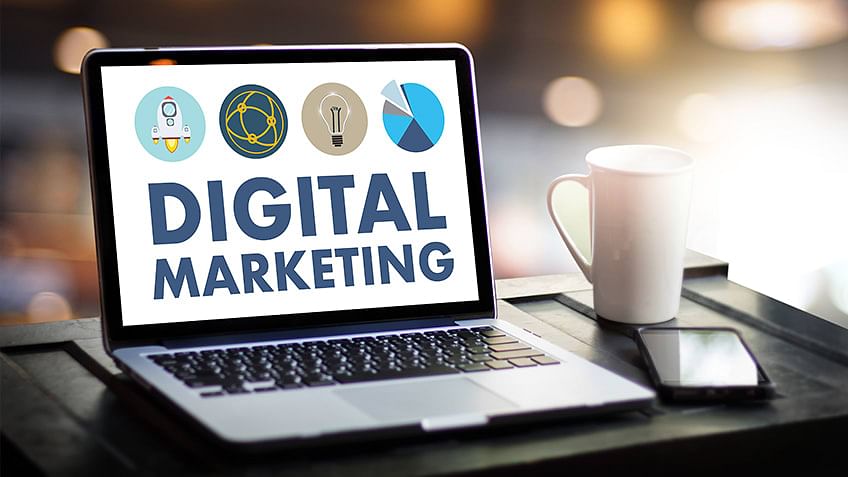In an era where the internet is an integral part of our lives, digital marketing has emerged as a cornerstone of modern business strategy. This article will delve into the world of digital marketing, exploring its essential components, benefits, and its ever-evolving nature in the digital age.

Understanding Digital Marketing
Digital marketing encompasses all marketing efforts that use an electronic device or the internet to connect with current and potential customers. It’s a multifaceted approach that leverages various online channels and platforms to promote products, services, or brands.
Key Components of Digital Marketing
1. Search Engine Optimization (SEO)
SEO is the practice of optimizing your website to rank higher in search engine results pages (SERPs). It involves improving website content, user experience, and backlinks to increase visibility and organic traffic.
2. Content Marketing
Content marketing focuses on creating and distributing valuable, relevant, and consistent content to attract and engage a target audience. This content can take various forms, including blog posts, videos, infographics, and more.
3. Social Media Marketing
Social media marketing involves using social platforms like Facebook, Instagram, Twitter, and LinkedIn to connect with your audience, build brand awareness, and drive engagement. It includes both organic and paid strategies.
4. Email Marketing
Email marketing is the practice of sending targeted emails to a list of subscribers. It’s an effective way to nurture leads, promote products, share news, and maintain customer relationships.
5. Pay-Per-Click (PPC) Advertising
PPC advertising allows businesses to display ads on search engines and other platforms. Advertisers pay a fee each time a user clicks on their ad. It’s a highly targeted form of advertising.
6. Affiliate Marketing
Affiliate marketing involves partnering with other businesses or individuals (affiliates) who promote your products or services in exchange for a commission on sales. It’s a performance-based marketing strategy.
Benefits of Digital Marketing
Digital marketing offers a multitude of advantages for businesses:
- Global Reach: It enables you to reach a global audience, breaking down geographical barriers.
- Cost-Effective: Digital marketing is often more budget-friendly than traditional marketing methods like print or TV ads.
- Targeted Advertising: You can precisely target your ideal audience based on demographics, interests, and online behavior.
- Measurable Results: Digital marketing provides extensive data and analytics, allowing you to track the performance of your campaigns in real-time.
- Improved Conversion Rates: With targeted messaging and personalized content, digital marketing can lead to higher conversion rates.
- Enhanced Brand Engagement: Engaging with customers through social media and content marketing builds brand loyalty and trust.
The Evolving Digital Landscape
Digital marketing is a dynamic field that continuously evolves with technological advancements and changing consumer behavior. Staying updated with the latest trends and tools is crucial for digital marketers to remain effective in their strategies.
In conclusion, digital marketing is a powerful tool in today’s digital age. It offers businesses the ability to connect with their audience, drive sales, and build brand presence in an increasingly competitive online landscape. By embracing digital marketing strategies and staying agile in the face of change, businesses can thrive and grow in the digital era.